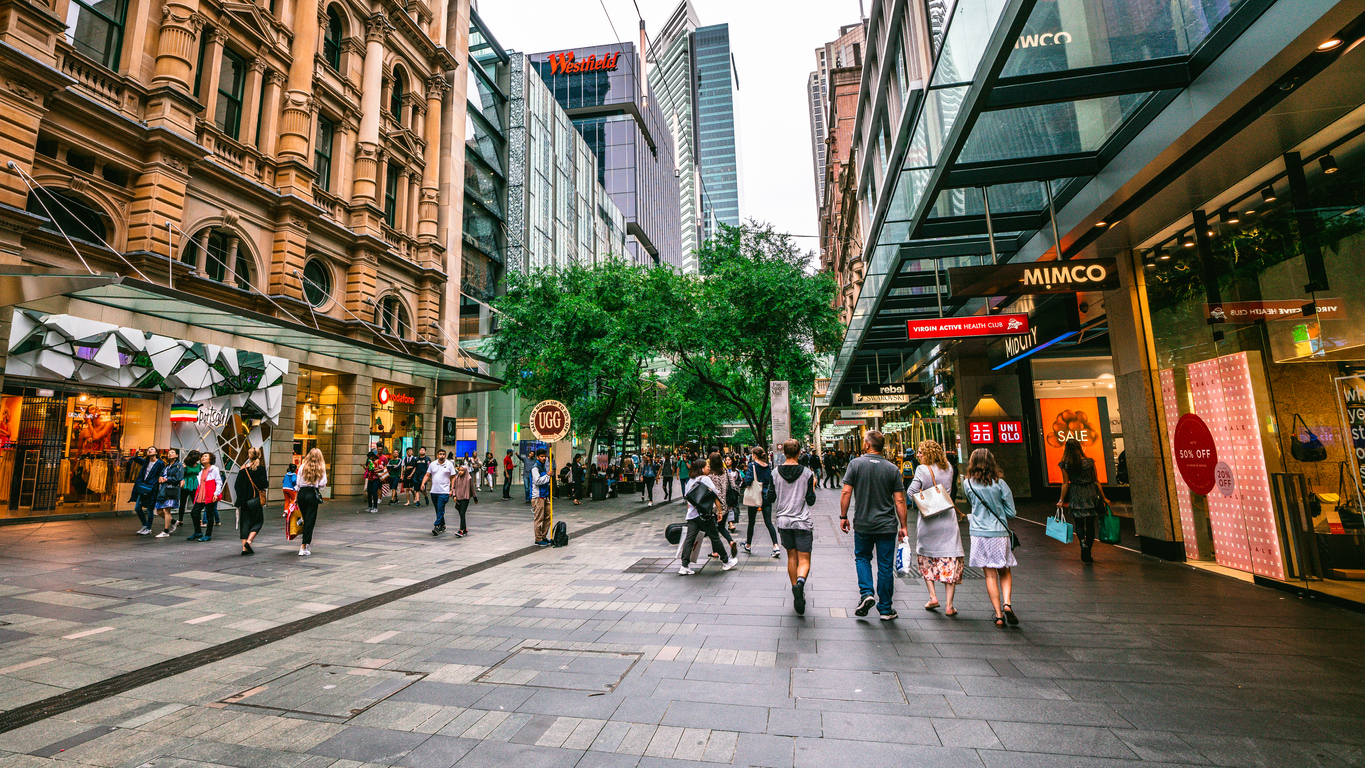Aussies are doing it tough, with one-third feeling uncertain about their future due to financial concerns, and the rising cost of living forcing them to change what, how, when and where they buy.
Only a few categories will be unaffected by these customer-driven changes, manifesting as moderated spending, trading down, switching categories, or sometimes stopping spending altogether.

Consumer behaviour is shifting as Australians respond to growing economic pressures. iStock (From AFR article)
Provide optimism and joy
The current cultural context presents a big opportunity for retailers to go beyond the usual price, product and portfolio levers to provide value to consumers. To ensure their future survival and longer-term growth, retailers must provide value that impacts the individual, facilitates community, and improves society at large, offering Australians optimism and joy during the current permacrisis.
For the individual, wellbeing has never been more important, with one in three Australians spending a lot more or a little more time on wellbeing compared to this time a year ago.
Michelle Newton, head of cultural forecasting for Fiftyfive5, part of Accenture Song.
Leading-edge retailers are adding value by tapping into this need empowering consumers to support their wellbeing through the retail experience.
H&M’s New York Move Studio features classes taught by neighbourhood fitness studios, while Selfridges has moved into the realm of self-discovery, offering wellness sessions in-store such as sex counselling, as part of their Future of “feel-goodness” campaign.
Feeling good is also about financial wellbeing; in the current context, this has led to a significant increase in thrift shopping, with one in five Australians having spent more in thrift shops in the past month.
Retailers can reframe thrifting from frugality to creativity and self-expression, helping consumers find delight in “hacking the system” through resale platforms such as the ones established by Net a Porter or Madewell.
Emotional connection is paramount
Paradoxically, Aussies cutting back on discretionary spending are still seeking moments of indulgence. The lipstick effect has kicked in. In times of hardship, we often look for small pleasures, and in Australia, one in 10 consumers are purchasing self-pampering items. Retailers are reframing products and services around the indulgence proposition, whether as petite pleasures or large and expensive binge purchases, i.e., international holidays, with a 4 per cent increase in spending for travel and holidays in Australia.
Ultimately, consumers seek an emotional connection to counter burnout culture and reduce anxiety. The holy grail of retail is the ability to deliver true and meaningful personalisation, making consumers feel valued. Embedding AI into retail will be mandatory for survival.
Soon retailers will be able to provide real-time personalised shopping feeds that decode the shopping mission at any point in its trajectory through data and omnichannel strategies to deliver an individual shopping experience tailored to mood and emotion.
Retail’s moving into entertainment category
The experience economy, coined by Pine and Gilmour in 1998, prophesied “the sale of memorable experiences to customers”. Today, this trend is used in various forms of commerce to provide meaningful experiences as the concept of ownership and acquiring “stuff” changes.
Future retailers should be entertainers, offering engaging content throughout the entire purchase journey. Consumer co-creation and co-ownership of brands provides the next level of retail engagement and entertainment. Autonomous and decentralised Web3 platforms like Nike’s SWOOSH, promote community co-creation enabling consumers to create new products, fostering an inclusive digital brand community.
Social impact an increasing expectation
Consumers also expect retailers to make a positive social impact, particularly regarding sustainability. 81 per cent of Australians are concerned about the environment, and two in three Aussies believe businesses need to do more to reduce our impact on climate change.
The retail sector is one of the more energy-intensive industries in Australia. It accounts for around 50 per cent of energy use in the commercial property sector and 5 per cent of Australia’s greenhouse gas emissions, according to the Australian Department of Climate Change, Energy, the Environment and Water.
Regenerative retail looks to circularity and ESG as table stakes. Officeworks has committed to using 100 per cent renewable energy from 2025 and has installed solar panels in seven stores nationwide with plans to accelerate the rollout of onsite solar energy systems. Retailers have an opportunity to reimagine their contribution to society beyond the sector.
Retail is morphing beyond its traditional boundaries to meet changing consumer value constructs. The future survival of Australia’s retail fittest will depend on better meeting individual, collective and social needs, sparking optimism and joy.
Michelle Newton is head of cultural forecasting for Fiftyfive5, part of Accenture Song. The data points included are from Fiftyfive5 Part of Accenture Song’s Australia Pulse, a continuous survey that tracks the behaviours and attitudes of Australians weekly.
Published on The Australian – Taking stock of the new retail value paradigm (afr.com)





